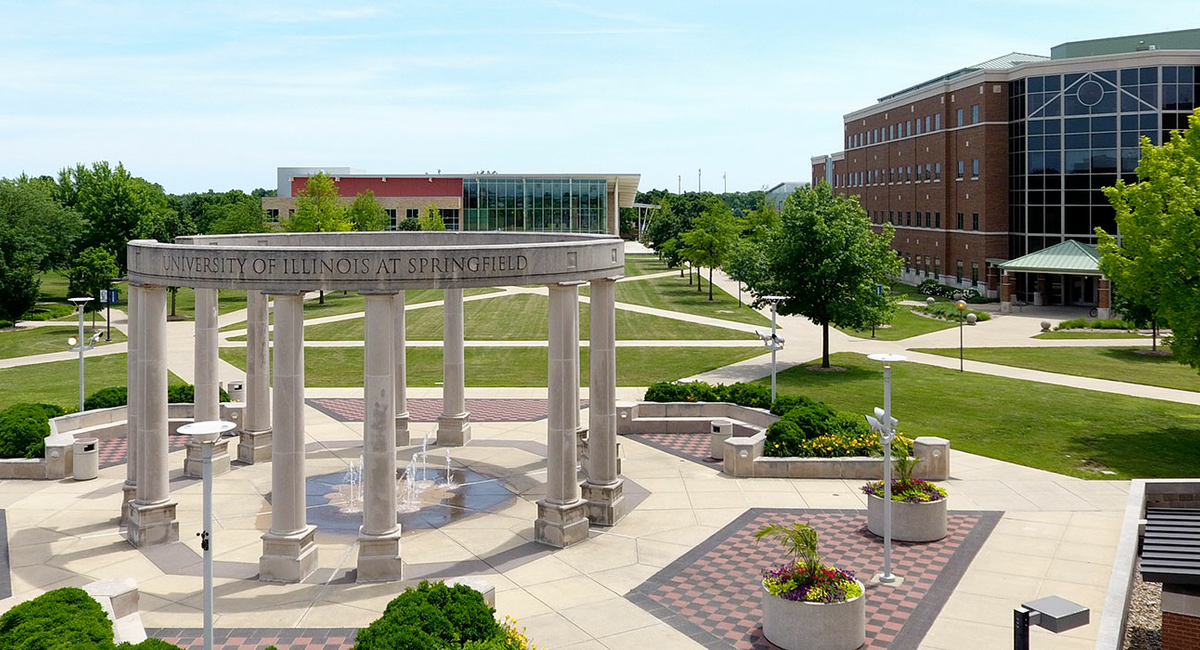
CPAE Faculty Spotlight:
Dr. Brooke Depenbusch, Legal Studies

Hello Everyone! My name is Brooke Depenbusch and I’m grateful to the Dean’s office for this opportunity to introduce myself. I joined UIS as an Assistant Professor in the Legal Studies Department in the Fall of 2022. Before this, I was a Visiting Assistant Professor in the Department of History at Colgate University. In 2019, I received my PhD in History from the University of Minnesota.
My teaching and research center on the intersection between economic inequality, state structure & social policy, and social movements in the modern United States. My current book project Down and Out in the USA: The Politics of Precarity from the Age of Roosevelt to Reagan examines the history of general relief, or the state and local public assistance programs that served as the safety net of last resort for the working poor. General relief programs have long been viewed as a backwater of the welfare state, but my research shows that understanding the peculiar trajectory of these programs helps us to better grapple with big questions about why the United States’ safety net is so weak and why it produces economic inequality that is so vast. In the middle of the 20th century, relief programs were uniquely underfunded and underdeveloped. But these features were not inevitable and, instead, were reflections of the way that conservative “taxpayer activists” had mobilized to keep these programs under grassroots control. Though various progressive activists envisioned and fought for the creation of a more adequate and generous national safety net, I argue that – over time – conservative activists translated their war on relief into a broader war on welfare that resulted in the weakening and dismantling of the larger safety net. In short, I’m suggesting that to understand the roots of some large contemporary problems we need to look back at arguments that first erupted in the 1930s and follow the changing ways that they have been fought over since.
Both my research and my experiences as a researcher have fundamentally shaped the ways that I teach my classes. As inspired by my research, a major question that we grapple with in my classes is: how does change happen? Given the weight of tradition and the kind of backlash that comes from efforts to democratize power and resources, what does it take for members of a society to bring about meaningful and durable change? In particular, how do people organize to bring about policies that include and empower society’s most vulnerable members? When I’m teaching courses like Immigration and the Law, History of American Law, and Law and Inequality, these are questions we puzzle over throughout the semester. More generally, I’m especially passionate about introducing students to the research process. Completing a major research project can be a daunting prospect, but there are few things as rewarding as finishing a piece of writing that you’re not only proud of, but which also succeeds in answering a question that you care about and matters to others. In courses like Public Advocacy, I try to break the research process down into its smallest component parts so that students first develop the skills and then, piece-by-piece, develop the analysis that will ultimately support a 15–18-page argument-based research essay. The process not only develops a number of important transferable skills, but it enables students to identify and dig into a problem that they’re personally invested in. I also hope that the process leaves students feeling empowered to tackle large and complex problems by methodically whittling them down bit by bit. It’s immensely rewarding to see my students develop their expertise in this way.


